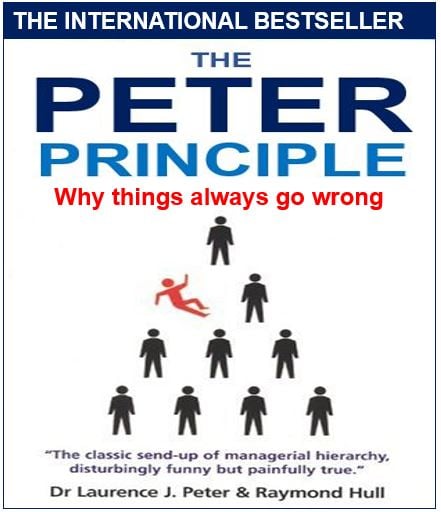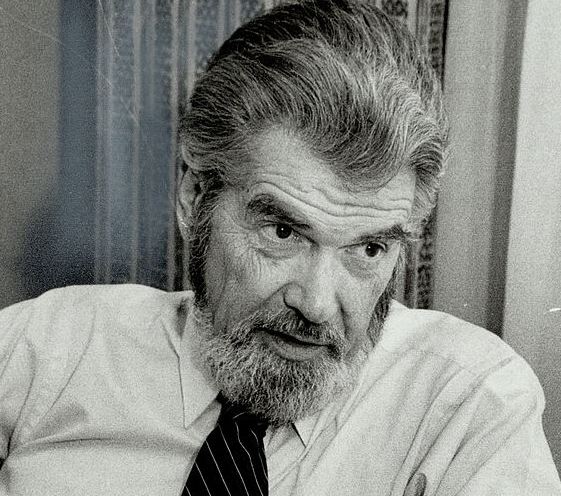The Peter Principle is a concept that members of a hierarchy are promoted until they reach their limit, as far as their competence is concerned. Once they reach that maximum level of competence, there is no further promotion and they remain in that job working incompetently.
Some people say that in the Peter Principle, people rise to their level of maximum competence, while others call it ‘their level of incompetence’.
According to the theory, as individuals are promoted, they gradually and progressively become less effective because top performance in one job does not necessarily mean there will be similar performance in another.
Just because people did well in one job does not necessarily mean they will excel if you promote them. The world’s best football player might be a terrible team manager, a gifted engineer without interpersonal skills will perform badly if you promote him or her into management.
Dr. Laurence J. Peter
The term is named after Dr. Laurence Johnston Peter (1919-1990), a Canadian educator and *hierarchiologist. He became famous after the publication of The Peter Principle in 1968, in which he stated:
“In a hierarchy every employee tends to rise to his level of incompetence. In time every post tends to be occupied by an employee who is incompetent to carry out its duties. Work is accomplished by those employees who have not yet reached their level of incompetence.”
* Hierarchiology, a term Dr. Peter also coined, is a social science concerned with the basic principles of hierarchically organized systems in human society.
 According to the book – The Peter Principle – promotion, like the paths of glory, leads to the grave of over-promotion. (Image: Adapted from Amazon.com)
According to the book – The Peter Principle – promotion, like the paths of glory, leads to the grave of over-promotion. (Image: Adapted from Amazon.com)
Dr. Peter observed that humans tend to use what worked well, even when this may not be appropriate for the current situation – it is a human trait.
We have this tendency because we believe we need to gather data before offering somebody promotion – competence is noticeable and therefore usually recognized.
Dr. Peter’s book illustrated the efforts of many managers who tried to seem productive when, in fact, they were in way over their heads.
Peter Principle: difficult vs. different
According to the Peter Principle, when people reach their ‘level of incompetence’, it is not because the required skills in the new position are more difficult, but because they are different. For example, a talented research scientist may be a poor manager because he or she does not have the necessary people skills to lead a team.
An assistant manager who is very good at adhering to rules and regulations might be promoted into a position where he or she has to create new rules. Just because that person was super-obedient does not necessarily mean they will be good rule creators.
Instead of aiming to promote a gifted ‘super-competent’ underling, Dr. Peter suggested that an incompetent manager may dismiss them or set them up to fail in order to maintain the hierarchy.
 Dr. Laurence Peter, the person who coined the term ‘The Peter Principal’, once said: “The incompetent with nothing to do can still make a mess of it.” (Image: lamenteesmaravillosa.com)
Dr. Laurence Peter, the person who coined the term ‘The Peter Principal’, once said: “The incompetent with nothing to do can still make a mess of it.” (Image: lamenteesmaravillosa.com)
Why aren’t incompetent managers fired?
– Perhaps they know too much about their boss’ business to be kicked out too casually.
– Maybe others have sympathy because they work so many hours. As soon as you reach incompetence, rather than being judged by your output you are judged by your input – your workload.
– Those who judge the inept managers are themselves incompetent.
In the business world, according to Dr. Peter, super-competent people are at risk of being fired because they are making everybody else look bad.
Three researchers – Cesare Garofalo, Andrea Rapisarda and Alessandro Pluchino – carried out a simulated promotion of employees in a system where the Peter System was assumed to be true. They concluded that the best way to get maximum efficiency in a commercial enterprise was to promote individuals randomly, or to shortlist the best and worst performer in any given group, from which one person is selected for promotion randomly. They won the 2010 edition of the parody Ig Nobel Prize in management science in 2010 for their work.
Training – a Laurence J Peter Principle solution?
In many companies and organizations across the world, too many employees remain in positions for which they are incompetent. This is because general incompetence is not usually a good enough reason to dismiss someone – only extreme incompetence will get you fired, Dr. Peter wrote.
Perhaps offering training for employees who are being considered or given promotion before they start in their new job might help minimize the incompetence phenomenon.
Dr. Peter, however, wondered whether even companies with good training programs are able to overcome the tendency to promote people to ‘positions of final placement’ – positions of incompetence.
